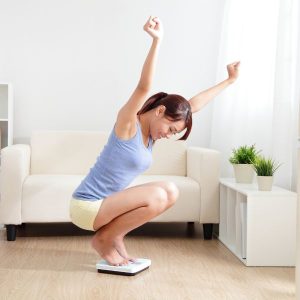Learn Everything You Need to Know, Including How You can Manage it Through Menopause Treatment in Houston, TX.
It’s something that we have all experienced, will experience, or are currently experiencing in our female lives. I, for one, being in my late 40s, am certainly going through these transitions.
You’ve heard about hot flashes, night sweats, low libido, and weight gain. You’ve seen your friends go through brain fog, sleepless nights, and dramatic hormonal swings. And chances are, depending on your age, you have experienced some of these symptoms, too.
What astounds me is the fact that women are still being told that menopause is some sort of disease – something that will make you (and everyone around you) completely miserable – when indeed, this does not have to be the case.
Menopause is actually a gift, a significant transformation that your body undergoes. Imagine no more periods!! No monthly mood swings, cramping, and feeling out of sorts. Imagine a consistent feeling of balance and happiness.
Sure, there are women who experience symptoms that are so frustrating they want to hide tucked away in their beds for the rest of their lives. But there are plenty of women out there experiencing the same symptoms but are living vibrant lives.
Menopause Treatment, tailored to individual needs and health considerations, stands as an effective tool empowering women to manage symptoms and improve their quality of life during this transitional phase.
Menopause can present various challenges. However, adopting a holistic approach and seeking support from healthcare professionals can significantly alleviate these challenges and enhance the overall menopausal experience.
Answering the Biggest WHATs
What is menopause?
Menopause is a normal time in a woman’s life, usually around her late 40s or early 50s, when her ovaries stop releasing eggs and her period stops. In the time leading up to menopause, often referred to as perimenopause, a woman may experience many different changes in her life: her hormones and period frequency may begin to change, and she may get mild menopause symptoms.
Menopause is caused when a woman’s ovaries are completely depleted of eggs and, therefore, stop producing hormones. This is a process that generally happens over a gradual amount of time; however, for some women, it can happen all at once.
For instance, if a woman has her ovaries removed through surgery, this can cause “induced menopause” and trigger an onset of menopause symptoms all in one period of time.
What to expect during menopause?
I’m just going to say that life gets easier after menopause. No more monthly visits from Aunt Flow. No more breast tenderness or crazy mood swings. You’ll also probably realize you don’t have odd food cravings during that “time of the month” and don’t binge eat either.
Life after menopause also gets more beautiful – more radiant, if you will. You’ll begin to know and learn so much about your body as well, but you are the one who has to take the wheel. You have to be the driver when it comes to taking control of your health, especially as you head into your menopausal years.
After all, you’ve taken care of everyone else all these years. Now, it’s time to take care of you. This is the time to learn more about bio-identical hormones and many other natural solutions to help ease this transition.
What are the symptoms?
Menopause, a natural phase marking the cessation of menstruation, often brings a range of challenging symptoms, affecting a substantial number of women. Studies indicate that roughly 1 in 10 women face severe menopausal symptoms, disrupting their ability to engage in daily tasks effortlessly. The prevalent manifestations encompass:
- Frequent Urination: During menopause, hormonal changes can impact the bladder and pelvic floor muscles, leading to increased urgency or frequency in urination.
- Weight Gain: Fluctuations in hormone levels may contribute to changes in body composition, leading to weight gain, especially around the abdomen.
- Brain Fog: Cognitive changes, often termed “brain fog,” can include difficulties with concentration, memory lapses, and mental clarity attributed to hormonal fluctuations.
- Mood Swings, Irritability, or Depression: Hormonal shifts during menopause can influence neurotransmitters, contributing to mood swings, irritability, or even depression in some women.
- Changes in Sexual Desire: Fluctuating hormone levels might result in changes in libido or sexual desire for some women.
- Joint and Muscle Aches and Pains: Menopause can be accompanied by joint stiffness, muscle aches, or pains due to hormonal changes affecting connective tissues and bones.
- Night Sweats or Sleep Problems: Similar to hot flashes, night sweats can disrupt sleep patterns, leading to insomnia or restless nights, impacting overall well-being.
- Vaginal Dryness or Painful Intercourse: Declining estrogen levels during menopause can lead to vaginal dryness, discomfort, or pain during sexual intercourse.
These various symptoms underscore the multifaceted challenges that menopause can bring, emphasizing the need for tailored approaches and comprehensive support to manage these changes effectively and enhance women’s overall quality of life during this transitional phase.
Dealing With Menopause
One of the most studied and proven treatments for improving menopause symptoms is hormone therapy, such as BHRT. The basic idea behind these treatments is to replace the hormones in a woman’s body that are no longer produced by her ovaries.
This is done by taking supplemental estrogen, with or without progesterone. These supplements help to increase the levels of hormones in the body, prevent hot flashes, improve vaginal lubrication, and also prevent many other common menopause symptoms.
Hormone therapy also helps to fight against bone loss and heart disease, serious problems that can often occur after going through menopause.
In addition to hormone replacement treatments, menopause symptoms can also be reduced by making certain lifestyle changes. Exercise is one of the biggest reducers of symptoms of menopause. Stretching and aerobic exercise are all recommended activities for women who are experiencing menopause symptoms.
Another big symptom reducer is a woman’s diet. A diet that is high in veggies and fruits and steers clear of saturated fats is recommended for a woman’s general health and well-being.
While menopause itself may be an unavoidable part of a woman’s life, it doesn’t have to be intolerable. Understanding the symptoms of menopause and the beneficial treatment options can help to make this natural time in your life much more comfortable.
Learn more here: Menopause Treatment Sugar Land TX: Addressing Changes and Enhancing Intimacy
The Best Menopause Treatment Specialist in Houston, TX

Are you seeking the best in Menopause Treatment? Dr. Shel Wellness and Aesthetic Center is renowned for its expertise in managing menopausal symptoms and providing top-notch Thyroid Hormone Therapy and Andropause Treatment. We’re committed to empowering patients to live healthier and happier lives.
At Dr. Shel Wellness & Aesthetic Center, located at 1437 Hwy 6 Ste 100, Sugar Land, TX, right next to Whole Foods Market and near Shell gas station, our dedicated team delivers exceptional care and tailored solutions for menopause, thyroid issues, and andropause.
Don’t just take our word for it—read the glowing reviews from our satisfied patients! Take the first step toward a better quality of life by calling Dr. Shel Wellness & Aesthetic Center at 281-609-4439 or visiting our clinic for a consultation.


















